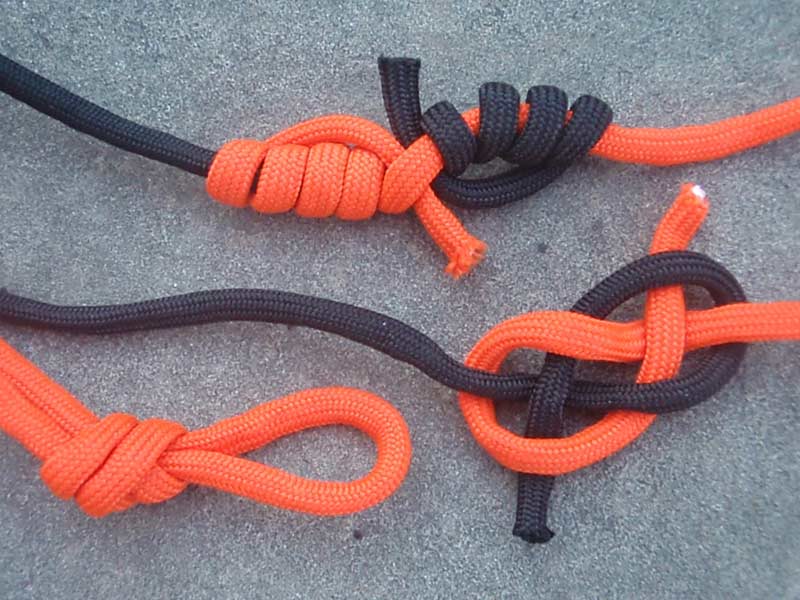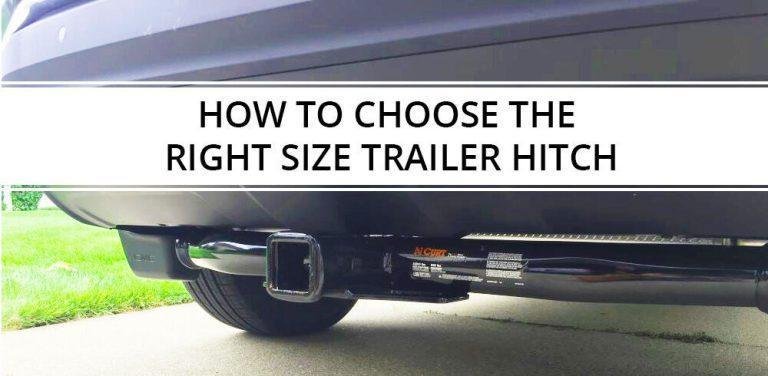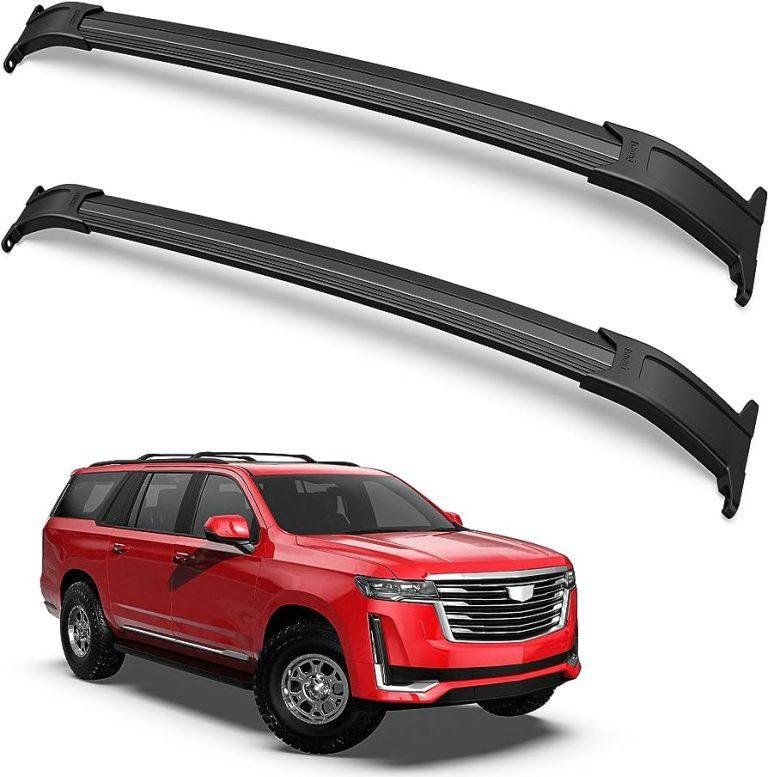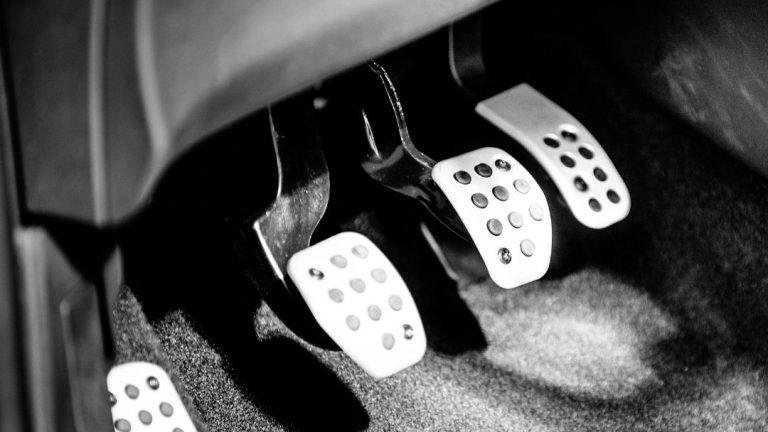Yes, wiring is necessary for a hitch. It ensures safety and enables the functioning of necessary lights and signals.
When towing a trailer or any other vehicle with your vehicle’s hitch, it is important to have proper wiring in place. Wiring allows the trailer’s lights and signals to operate, making it visible to other drivers on the road. Without wiring, you may not be able to use your trailer’s lights, brakes, or turn signals, leading to potential accidents or violations.
Therefore, installing wiring for your hitch is essential for ensuring safety and compliance with traffic regulations.

Credit: www.popsci.com
Understanding The Power Connection
Understanding the power connection for a hitch is essential to know if wiring is required. Find out how to determine if your hitch needs wiring and why it is necessary for a safe and functional towing experience.
Importance Of Proper Wiring For Hitch Installation:
- The power connection is a crucial aspect of hitch installation as it allows for safe and reliable towing.
- Proper wiring ensures that the trailer’s lights, brakes, and other electrical components are fully functional while on the road.
- A well-installed power connection reduces the risk of accidents, enhances visibility, and promotes adherence to traffic regulations.
Ensuring Safety And Compliance With Regulations:
- Proper wiring enables the functioning of safety features like brake lights, turn signals, and hazard lights, ensuring that other drivers are aware of your intentions while towing.
- Compliance with regulations is essential to avoid fines and potential liability in case of accidents or damage caused by improper wiring.
- The power connection must meet the necessary standards and specifications to ensure safe towing operations and prevent accidents on the road.
Common Misconceptions About Hitch Wiring:
- Misconception: “my vehicle’s existing wiring should be sufficient for towing.”
- Explanation: While some vehicles may have pre-installed wiring connections, they might not be suitable for towing heavy trailers. It is essential to assess the capacity and compatibility of the existing wiring system.
- Misconception: “i can simply use temporary or makeshift wiring for my hitch.”
- Explanation: Using temporary or makeshift wiring solutions may lead to unreliable connections, poor electrical performance, and potential safety hazards. It is best to invest in proper wiring installation to ensure long-term reliability and safety.
- Misconception: “wiring for a hitch is only necessary for large trailers.”
- Explanation: Regardless of the trailer size, proper wiring is essential for safe towing. Even small trailers need functioning lights and signals for safe navigation on the road.
Remember, ensuring a proper power connection for your hitch installation not only guarantees your safety but also ensures compliance with regulations. Avoid relying on misconceptions about hitch wiring, as they can jeopardize your towing experience and compromise road safety. Opt for professional installation and adhere to guidelines to enjoy secure and trouble-free towing adventures.
Exploring The Different Types Of Wiring Options
Discover the various types of wiring options available for hitches and determine if you need wiring for your specific setup. Gain insight into the importance of wiring for hitches and how it enhances safety and functionality.
When it comes to hitch installations, understanding the wiring options available is crucial. Wiring is essential for connecting your vehicle’s electrical system to the trailer’s lights and signals. There are two main types of wiring options: hardwired and plug-and-play. Let’s delve deeper into each option and explore their pros and cons, as well as their compatibility with different vehicles.
Hardwired Vs. Plug-And-Play Wiring Options
**hardwired wiring option:**
- Provides a permanent and secure connection between the vehicle and the trailer.
- Requires the physical installation of wiring components, including splicing wires and connecting them to the vehicle’s electrical system.
- More time-consuming and requires a certain level of technical expertise.
- Offers reliable and robust connectivity between the vehicle and the trailer.
- Generally works well for vehicles that may tow trailers frequently or for heavier loads.
**plug-and-play wiring option:**
- Offers a convenient and hassle-free installation process.
- Utilizes connectors and harnesses that allow for easy connection without the need for cutting or splicing wires.
- Ideal for individuals who do not have advanced technical skills or for those who frequently switch between trailers.
- Allows for quick installation and removal, making it a practical choice for occasional towing needs.
- Provides a reliable connection, ensuring proper functionality of the trailer lights and signals.
Both hardwired and plug-and-play wiring options have their advantages and disadvantages. Ultimately, the choice depends on your specific needs and preferences.
**hardwired wiring option pros:**
- Permanent and secure connection
- Reliable and robust connectivity
**hardwired wiring option cons:**
- Time-consuming installation process
- Requires technical expertise
**plug-and-play wiring option pros:**
- Convenient and hassle-free installation
- Easy connection without cutting or splicing wires
**plug-and-play wiring option cons:**
- May not be as durable as hardwired installations
- Limited compatibility with certain vehicles
Compatibility With Various Vehicles
When considering wiring options, it’s important to ensure compatibility with your vehicle. While many plug-and-play wiring kits are designed to fit a wide range of vehicle models, some vehicles may require additional adapters or modules for proper integration. It’s crucial to review the specifications and compatibility information provided by the manufacturer to ensure a seamless installation process.
Understanding the different wiring options available for hitch installations is essential for a successful towing experience. Whether you opt for the hardwired or plug-and-play option, weigh the pros and cons based on your specific needs and preferences. Additionally, always ensure compatibility with your vehicle to avoid any potential issues.
So, take your time to research and make an informed decision that suits your towing requirements. Happy towing!
The Benefits Of Wiring For A Hitch
Wiring for a hitch provides numerous benefits such as ensuring proper functioning of brake and signal lights, enhancing safety during towing, and complying with legal requirements. It is essential for a hitch to have wiring for seamless communication between the towing vehicle and the trailer.
Enhanced safety and visibility:
- Proper wiring for a hitch ensures that your trailer lights function properly, improving visibility for yourself and other drivers on the road.
- With functioning lights, you can signal your turns, brake, and reverse movements effectively, reducing the risk of accidents.
Access to additional features and functionalities:
- Wiring for a hitch allows you to access a range of extra features and functionalities, such as electric brakes and auxiliary power.
- Electric brakes provide better control over your trailer’s braking system, enhancing safety and reducing wear on your vehicle’s brakes.
- Auxiliary power enables you to power additional accessories or charge devices while towing, making your journey more convenient.
Convenience and ease of use:
- Having wiring for a hitch simplifies the process of connecting and disconnecting your trailer.
- With proper wiring in place, you don’t have to worry about manually attaching and detaching trailer lights every time you tow.
- It also eliminates the need for temporary tow lighting solutions, saving you time and hassle.
Wiring for a hitch offers several benefits, including enhanced safety and visibility, access to additional features and functionalities, and convenience and ease of use. By ensuring that your trailer lights work properly, you can make driving with a trailer a more enjoyable and safer experience.
Factors To Consider When Choosing A Wiring Solution
Choosing the right wiring solution for your hitch requires considering factors like vehicle compatibility, towing capacity, and type of trailer. Make sure to research and select a wiring option that meets your specific needs.
Adding a hitch to your vehicle opens up a world of possibilities for towing trailers, bikes, or even hauling heavy loads. But before hitching up, you’ll need to ensure that your vehicle is equipped with the right wiring solution. Here are some key factors to consider when choosing a wiring solution for your hitch:
Vehicle-Specific Wiring Kits:
- Vehicle-specific wiring kits are designed to seamlessly integrate with your vehicle’s existing electrical system.
- These kits are tailored to fit specific makes and models, ensuring a precise fit and optimal performance.
- They typically come with all the necessary components and connectors, making installation a breeze.
Wiring Harness Compatibility And Installation Ease:
- It’s important to ensure compatibility between your vehicle’s wiring harness and the wiring solution you choose.
- Some vehicles may require additional wiring adapters or modules to establish a proper connection.
- Consider opting for a wiring solution that offers easy installation, minimizing the need for professional assistance.
Budget And Long-Term Investment:
- While cost is a factor, it’s essential to not compromise on the quality and functionality of the wiring solution.
- Investing in a reliable wiring solution upfront can save you from potential issues and costly repairs down the line.
- Consider the long-term value and durability of the wiring solution in relation to your budget.
By considering these factors, you can make an informed decision and choose a wiring solution that suits your vehicle, preferences, and towing needs. Whether you opt for a vehicle-specific wiring kit or prioritize compatibility and installation ease, selecting the right wiring solution will ensure a seamless and safe towing experience.
Step-By-Step Guide To Installing Hitch Wiring
Installing hitch wiring is crucial to ensure a safe and proper connection between your vehicle and trailer. This step-by-step guide provides easy instructions to help you understand the importance of wiring and successfully complete the installation process.
So, you’re ready to install hitch wiring in your vehicle? Great! This step-by-step guide will walk you through the process to help make it a smooth and successful installation. Follow along and soon you’ll have your wiring all set up and ready to go.
Gathering The Necessary Tools And Materials:
Before you begin installing your hitch wiring, it’s important to gather all the tools and materials you’ll need. Here’s a checklist to get you started:
- Hitch wiring kit: Make sure you have a kit that is compatible with your vehicle and hitch system.
- Wire strippers: These will help you remove insulation from the wires for proper connections.
- Electrical tape: Use this to secure and protect your connections from the elements.
- Wire connectors: You’ll need these to join the wires together securely.
- Wire loom: This protective covering will help keep your wiring organized and protected.
- Electrical cleaner: A cleaning spray will ensure good connections and prevent corrosion.
- Screwdriver or drill: Depending on the type of hitch wiring system, you may need a screwdriver or drill for installation.
- Owner’s manual: Always refer to your vehicle’s manual for specific instructions and details.
Locating The Vehicle’S Wiring System:
Now that you have all your tools and materials ready, the next step is to locate your vehicle’s wiring system. Follow these steps to find it:
- Check the owner’s manual: Your vehicle’s manual should have information on the location of the wiring system.
- Examine the rear of your vehicle: Look for any existing wiring connectors near the rear bumper or hitch area.
- Trace the wires: These wires may be bundled together and lead to the back of your vehicle.
- Use a tester: If you’re having trouble finding the wiring, use a tester to identify which wires are for the brake lights, turn signals, and other electrical functions.
Understanding The Wiring Installation Process:
Now that you’ve located the wiring system, it’s time to install your hitch wiring. Follow these steps for a successful installation:
- Prepare the wires: Strip the insulation from the ends of the wires and clean them using electrical cleaner.
- Connect the wires: Use wire connectors to join the appropriate wires from the hitch wiring kit to the corresponding wires in the vehicle’s wiring system.
- Secure the connections: Once the wires are connected, use electrical tape to secure and protect the connections.
- Organize the wiring: Use wire loom to keep the wiring organized and protected from any potential damage.
- Test the connections: Before finishing up, test the wiring connections to ensure they are working properly. This may involve connecting your vehicle to a trailer or using a tester to verify functionality.
- Complete the installation: Once you’ve confirmed that everything is working correctly, tidy up any loose wiring and ensure it is out of the way of any moving parts.
Remember, proper installation of hitch wiring is crucial for safe and reliable towing. If you’re unsure about any step or encounter any issues, it’s always best to consult a professional or refer to your vehicle’s manual. Now that you have this step-by-step guide, you’re well-equipped to tackle the installation process with confidence.
Happy towing!
Troubleshooting Common Wiring Issues
Wiring issues can cause troubles when it comes to hitch installation. Find out if you need wiring for a hitch and troubleshoot common wiring problems for a smooth and hassle-free experience.
Identifying And Resolving Wiring Connection Problems:
- Loose or disconnected wiring connections can lead to various issues with your hitch wiring. Here are some steps to identify and resolve common wiring connection problems:
- Inspect all the wiring connections: Check all the connections between the wiring harness and the hitch components. Look for any loose or disconnected wires.
- Ensure proper grounding: A good ground connection is crucial for your hitch wiring to function correctly. Make sure the ground wire is securely connected to a suitable metal surface.
- Identify damaged wires: Look for any signs of frayed or damaged wires. These can cause intermittent connectivity or complete failure. If you find any damaged wires, they will need to be repaired or replaced.
- Use a wiring tester: If you are unsure about the connectivity of your wiring, consider using a wiring tester. This tool can help identify any faults or weak connections.
- Securely reconnect any loose or disconnected wires: Once you have identified any loose or disconnected wires, ensure they are securely connected. Use electrical tape or heat-shrink tubing to protect spliced wires.
Dealing With Electrical Shorts And Blown Fuses:
- Electrical shorts and blown fuses can occur in your hitch wiring, causing a loss of power or malfunctioning signals. Follow these steps to address such issues:
- Check the fuses: Inspect the fuses in your vehicle’s fuse box related to the hitch wiring. Look for any blown fuses and replace them with the appropriate rating.
- Test for short circuits: Short circuits can occur due to wiring insulation damage or faulty connections. Use a circuit tester to identify any short circuits. Fix any issues found.
- Inspect the wiring harness: Examine the entire length of the wiring harness for any exposed or damaged wires. Replace the wiring harness if necessary.
- Avoid overloading the circuit: Ensure that you are not overloading the hitch wiring circuit by exceeding its maximum capacity. This can cause electrical issues. Refer to the hitch and vehicle manuals for the recommended load capacity.
Seeking Professional Help When Needed:
- While troubleshooting and resolving common wiring issues can be done by yourself in many cases, there are situations where professional help is recommended. Consider the following:
- Complex wiring problems: If the wiring issues seem complicated or beyond your expertise, it may be best to consult a professional mechanic or auto electrician who specializes in hitch wiring systems.
- Vehicle warranty concerns: If your vehicle is still under warranty, seeking professional assistance can help prevent voiding the warranty due to improper repairs or alterations.
- Safety concerns: If you have concerns about your ability to handle electrical repairs or if there are safety risks involved, it is advisable to seek professional help. Safety should always be a priority.
Remember, properly functioning hitch wiring ensures the safety and legality of towing, so addressing any wiring issues promptly is essential. By following these troubleshooting steps and seeking professional assistance when necessary, you can maintain a reliable and secure hitch wiring system.
Maintaining And Upgrading Your Hitch Wiring
Maintaining and upgrading your hitch wiring is crucial for safe towing. Proper wiring ensures that your vehicle’s lights, brake signals, and blinkers function properly, providing clear communication with other drivers on the road. Don’t overlook the importance of wiring for a hitch—it’s a small investment that can prevent accidents and keep you and others safe.
Regular inspection and maintenance tips:
- Perform visual inspections of your hitch wiring regularly to check for any signs of wear or damage.
- Ensure that all connections are secure and free from corrosion or rust.
- Test the lights and signals to ensure they are functioning properly.
- Replace any faulty bulbs or damaged wiring as soon as possible.
- Lubricate connectors and terminals to prevent moisture buildup and improve conductivity.
Upgrading to advanced wiring systems:
- Consider upgrading to advanced wiring systems that offer enhanced durability and functionality.
- Advanced wiring systems, such as heavy-duty harnesses, can withstand harsh weather conditions and provide better protection against wear and tear.
- These systems often feature plug-and-play designs, making installation easier and more convenient.
- Upgrading to advanced wiring systems can improve the overall reliability and longevity of your hitch wiring.
Benefits of professional installation and maintenance services:
- Professional installation ensures that your hitch wiring is correctly installed and meets all safety requirements.
- Certified technicians have the expertise to handle complex wiring installations and troubleshooting.
- Professional maintenance services can help identify and address any potential issues before they escalate.
- By entrusting the installation and maintenance to professionals, you can have peace of mind knowing that your hitch wiring is in good hands.
Remember, regular inspection and maintenance of your hitch wiring is essential to ensure its proper functioning and to maintain your safety on the road. Upgrading to advanced wiring systems can also enhance the durability and reliability of your hitch wiring.
If you’re unsure about the installation or maintenance process, it’s always beneficial to seek professional services to ensure a job well done.
Frequently Asked Questions On Do I Need Wiring For A Hitch?
Do You Need Wiring For Bike Rack Hitch?
Yes, you need wiring for a bike rack hitch.
What Wiring Do I Need For A Trailer Hitch?
To wire a trailer hitch, you’ll need a few important components. Firstly, you’ll need a trailer wiring harness that matches your vehicle’s make and model. This harness connects to your vehicle’s electrical system and provides the necessary power for the trailer lights and brakes.
Secondly, you’ll need a trailer connector, usually a standard 4-pin or 7-pin connector, depending on the trailer’s requirements. This connector attaches to the wiring harness and provides the electrical connection between the vehicle and trailer. Lastly, you might need a trailer brake controller if your trailer has electric brakes.
This controller allows you to control and apply the trailer brakes from the vehicle’s cabin. It’s important to consult your vehicle’s manual and follow the manufacturer’s guidelines to ensure proper installation and functionality. By adhering to these steps, you’ll have the necessary wiring for your trailer hitch.
Is It Hard To Wire A Trailer Hitch?
Wiring a trailer hitch is not difficult. Just follow these simple steps: 1. Start by gathering the necessary supplies: a wiring kit, wire strippers, electrical tape, and wire connectors. 2. Locate the vehicle’s wiring harness, usually found near the rear bumper.
3. Use the wire strippers to remove a small section of insulation from each wire in the harness. 4. Connect the corresponding wires from the wiring kit to the vehicle’s harness wires using the wire connectors. 5. Once all the connections are secure, wrap each one with electrical tape for added protection.
6. Test the trailer lights to ensure they are working properly before towing. 7. Repeat the process for any additional wiring needed for brakes or other trailer accessories. By following these steps, wiring a trailer hitch should be a straightforward task.
If in doubt, consult the vehicle’s manual or seek professional assistance.
What Do I Need For A Trailer Hitch?
To install a trailer hitch, you’ll need a few essential components: 1. A receiver hitch: choose one that matches the weight capacity and class (e. g. , class i, ii, iii) suitable for your towing needs. 2. Hitch ball mount: this attaches to the receiver hitch and holds the hitch ball.
3. Hitch ball: choose the right size and weight capacity to match your trailer’s coupler. 4. Safety chains: these provide a backup connection between your vehicle and the trailer. 5. Wiring harness: to power the trailer’s lights and signals, you’ll need a compatible wiring harness installed on your vehicle.
6. Trailer connectors: these connect the trailer’s electrical system to your vehicle. 7. Mounting hardware: this includes bolts, nuts, and washers necessary to secure the hitch components to your vehicle. Remember to follow the manufacturer’s instructions and consult a professional if you’re unsure about any step.
Conclusion
Proper wiring for a hitch is a crucial consideration for anyone who wants to tow a trailer or attach other accessories to their vehicle. It not only ensures the safety of yourself, your passengers, and other road users, but also helps to comply with legal requirements.
The wiring enables you to have functioning brake lights, turn signals, and other essential electrical components that ensure proper communication between your vehicle and the trailer. By investing in the necessary wiring, you can avoid costly fines and penalties while enjoying a smoother and safer towing experience.
Remember to consult with a professional or refer to your vehicle owner’s manual for specific instructions and requirements. Whether you plan to tow a boat, rv, or simply haul cargo, proper wiring will give you peace of mind and ensure a hassle-free journey on the road.






